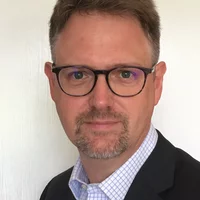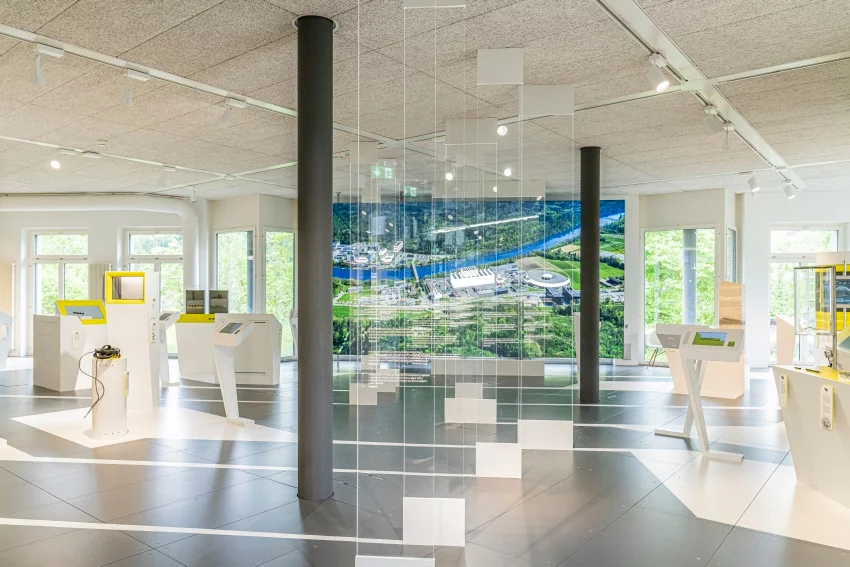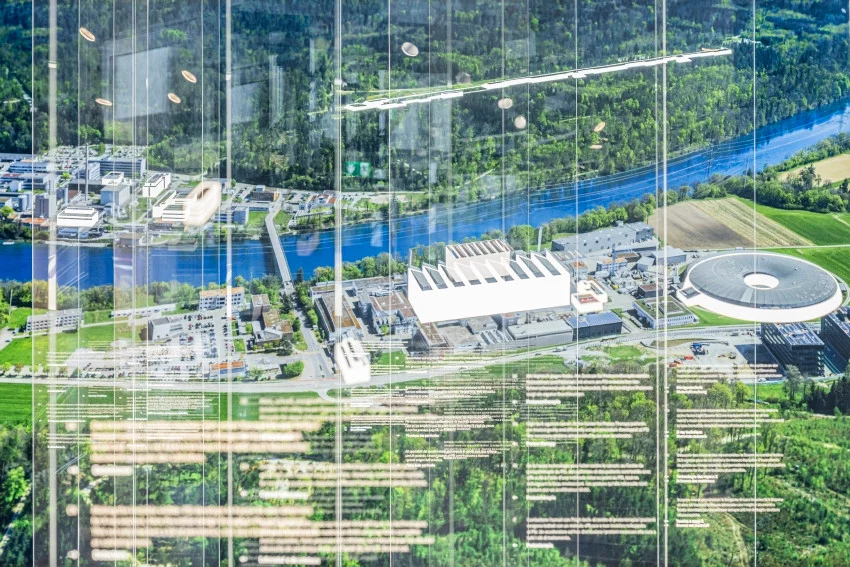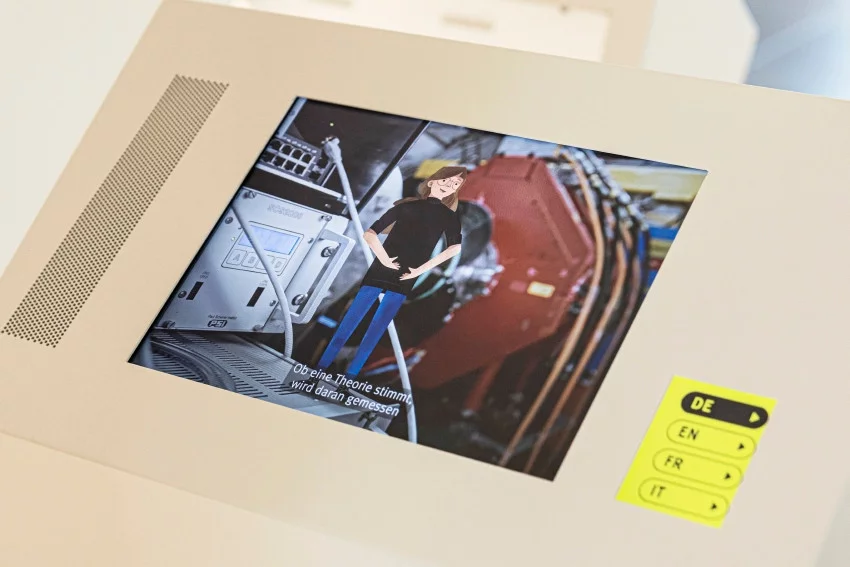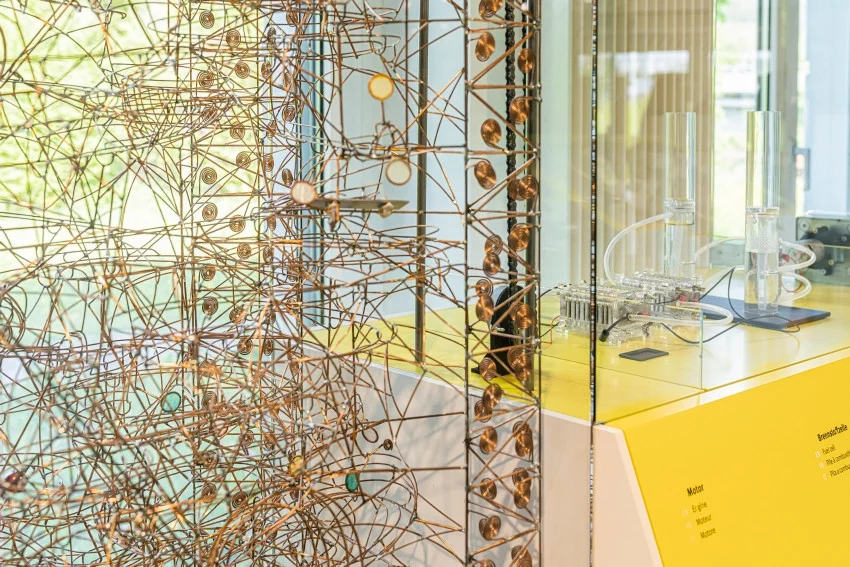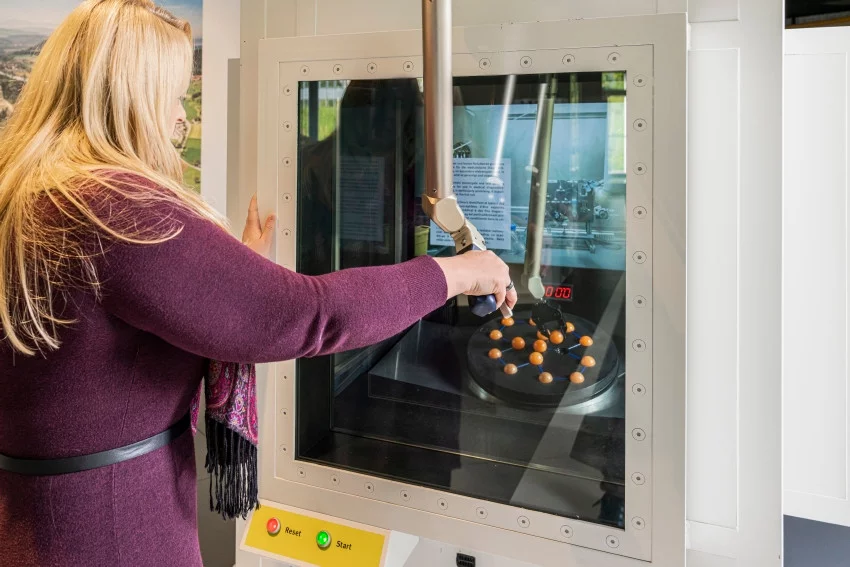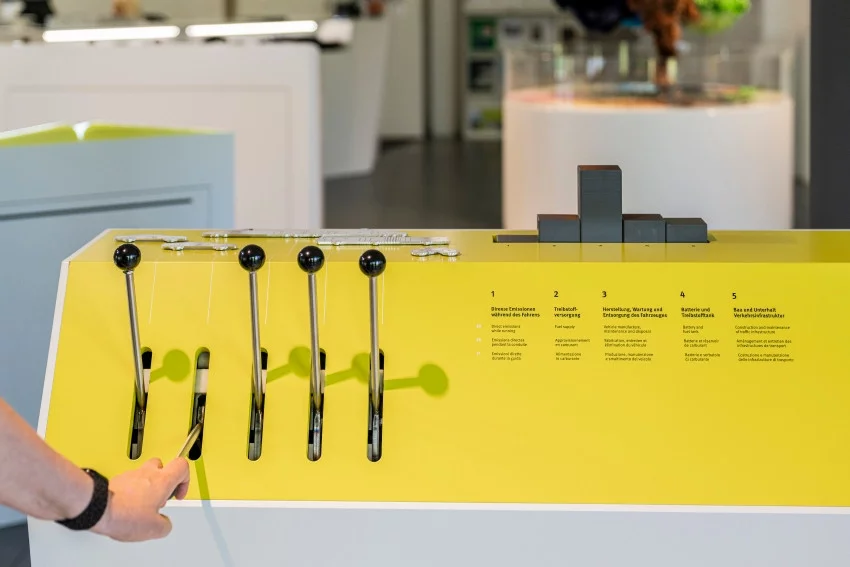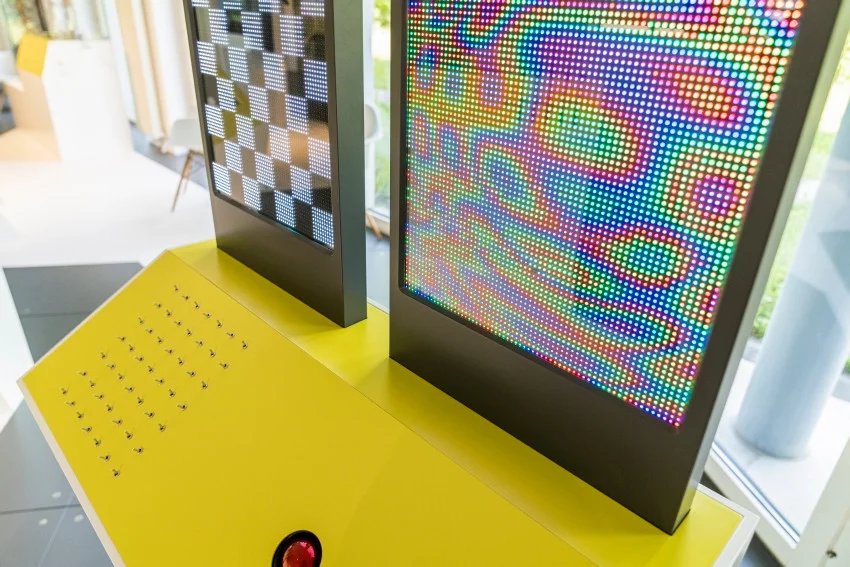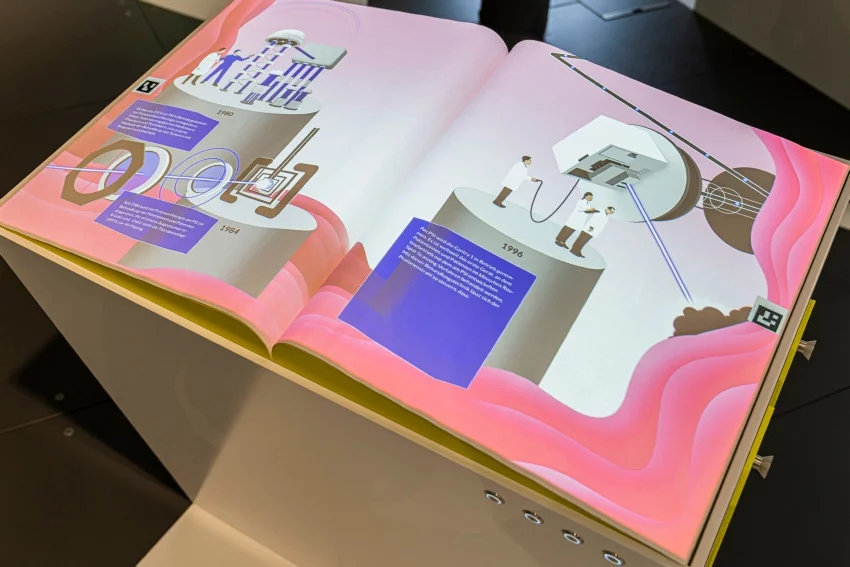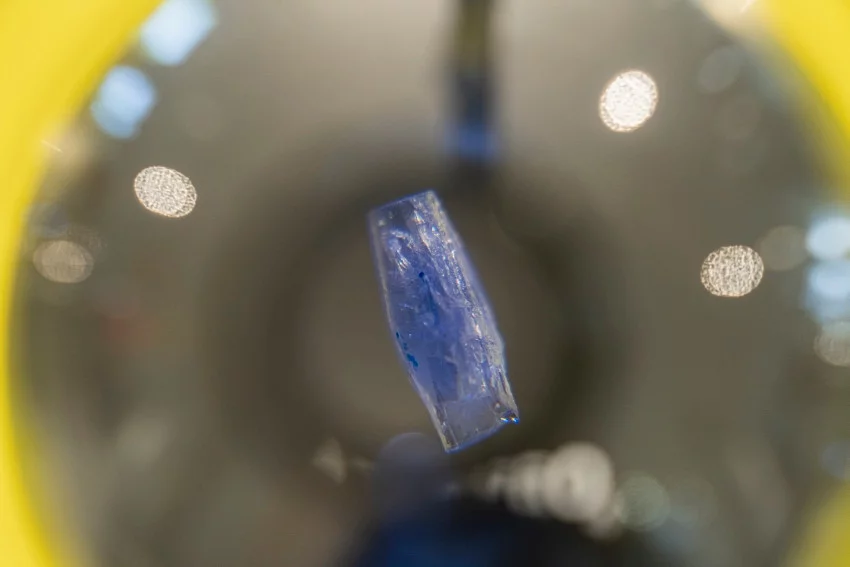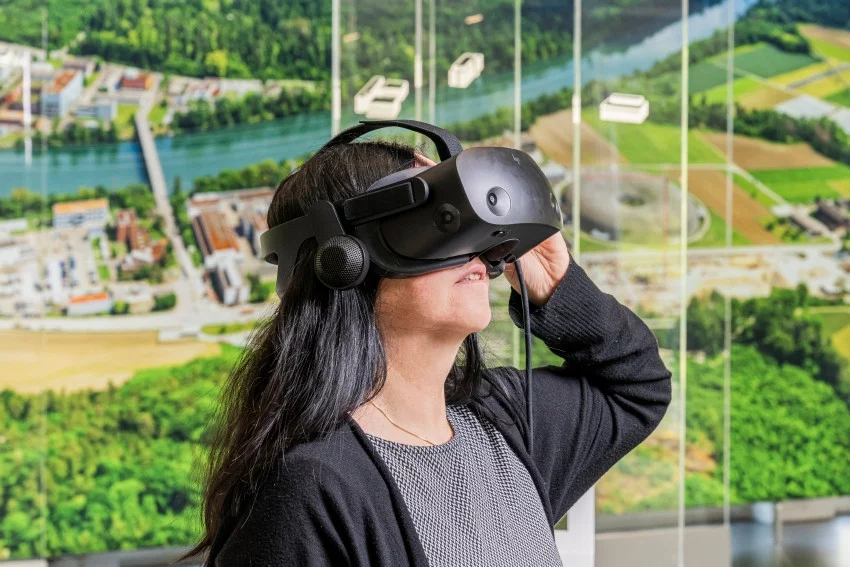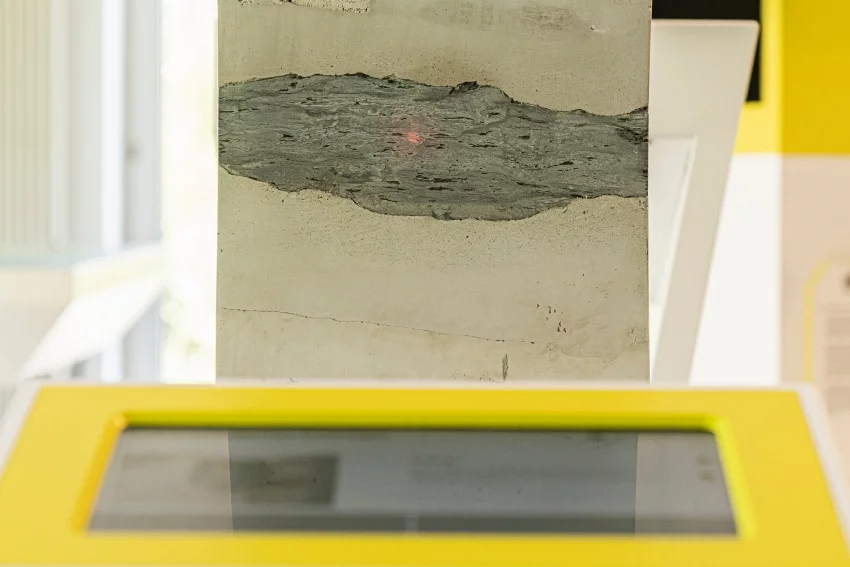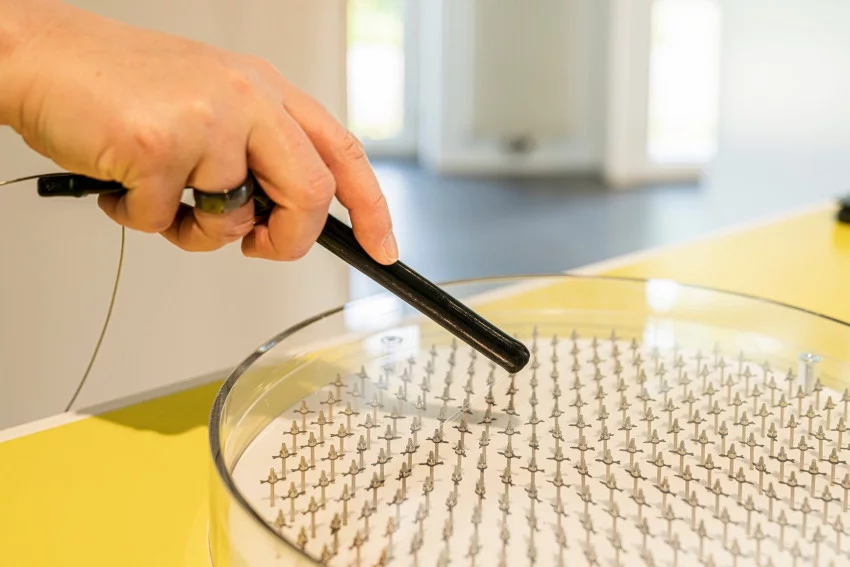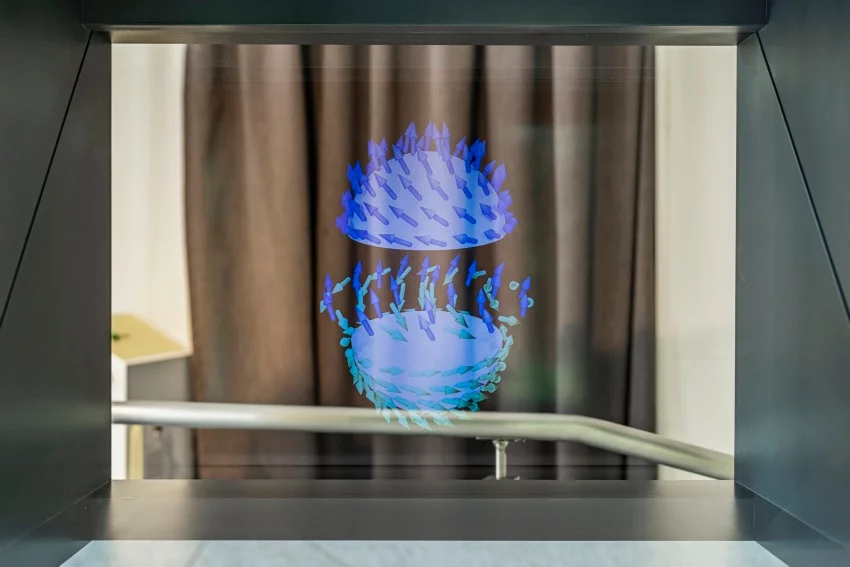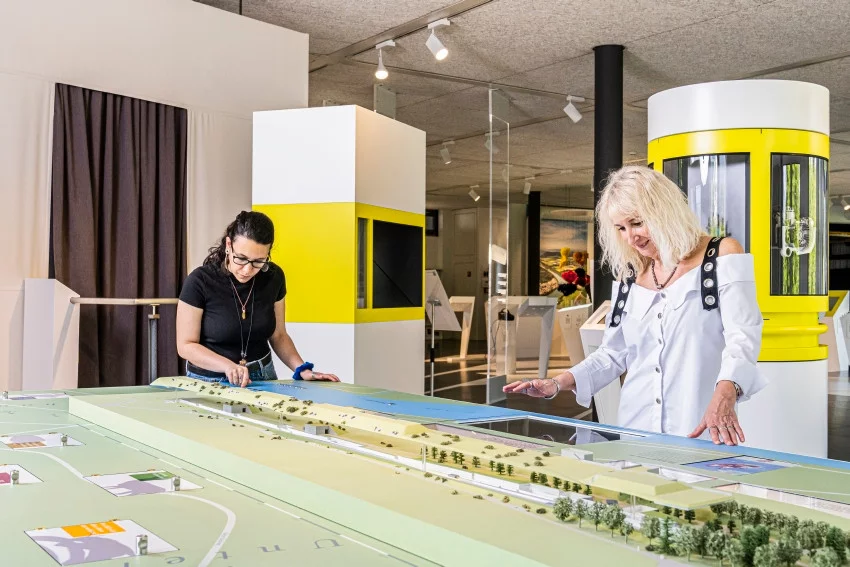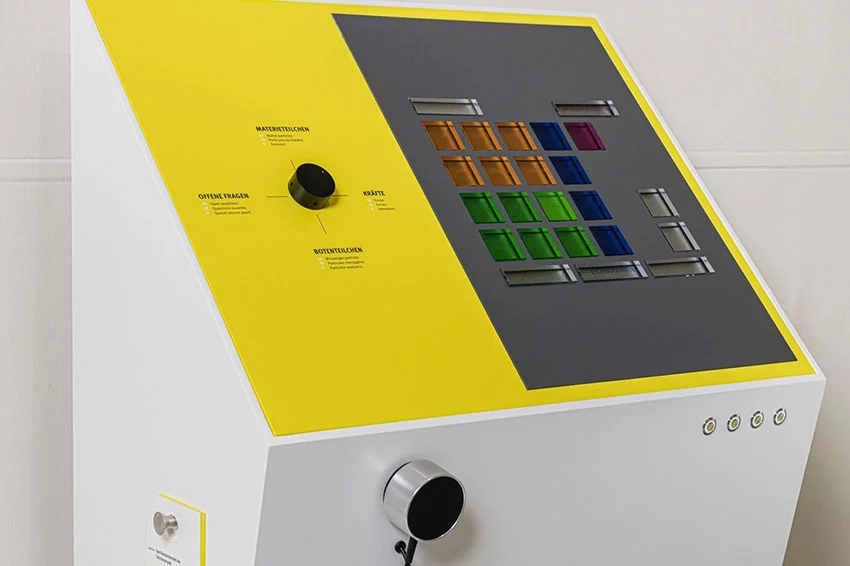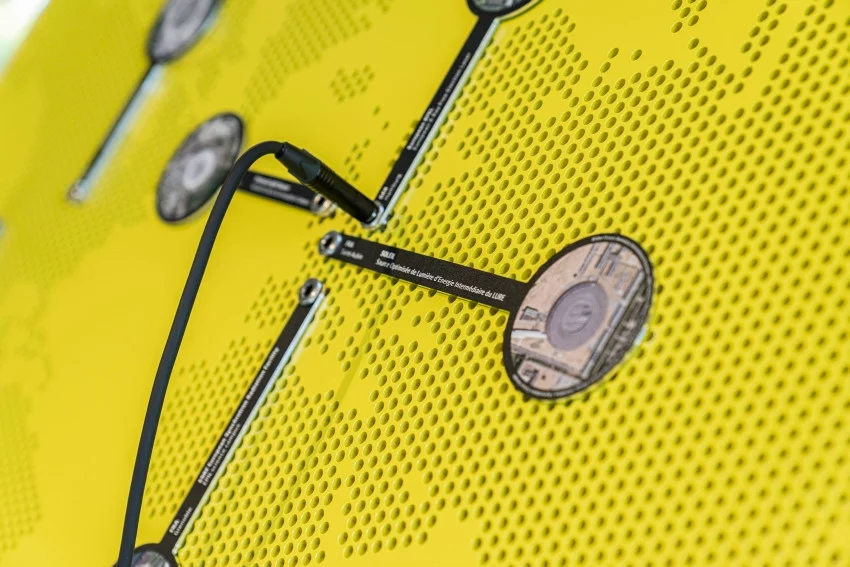Visiting the researchers
The new exhibition in the PSI Visitor Centre highlights the contribution the Paul Scherrer Institute makes to addressing the important questions that society is facing, from the energy transition and the fight against cancer, to the development of new technologies. Come with us on a voyage of discovery.
How do we ensure our future energy supply in a way that conserves natural resources? What does medicine have in store for us in the future? Which new technologies will advance our society? The Paul Scherrer Institute is searching for answers to these critical questions.
Under the motto “Visiting the researchers”, PSI invites you to the new exhibition in the Visitor Centre to discover its wide-ranging research.
Contact
Paul Scherrer Institute
Visitor Centre
5232 Villigen PSI
Switzerland
Telephone: +41 56 310 21 00
E-Mail: psiforum@psi.ch
www.psiforum.ch
Copyright
PSI provides image and/or video material free of charge for media coverage of the content of the above text. Use of this material for other purposes is not permitted. This also includes the transfer of the image and video material into databases as well as sale by third parties.
